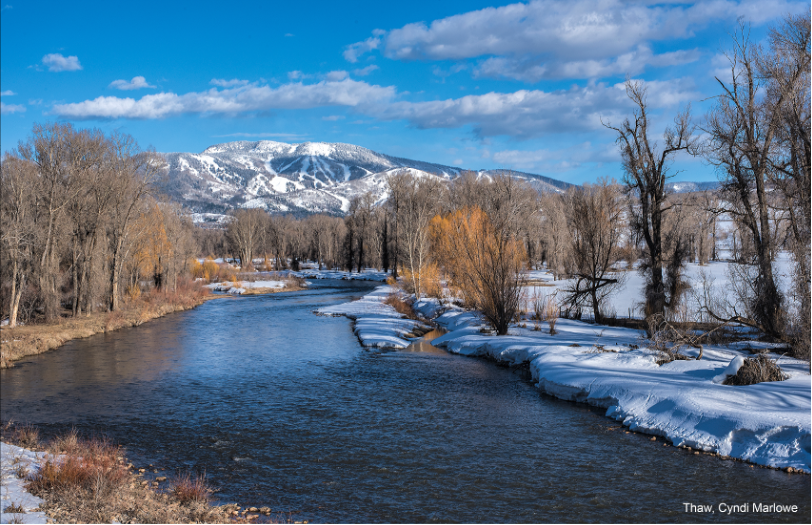CW3E Participates in a Dialogue on Drought in the Upper Colorado’s Yampa River Basin after the First-Ever Shortage Declaration on Lake Mead
October 13, 2021
The annual Yampa Basin Rendezvous (YBR) is part of a larger CW3E effort to connect graduate students, post-doctoral scholars, researchers, staff, and faculty from CW3E to the local communities of river basins throughout the West, along with local, state, and federal experts in policy and relevant science. This year, the conversation focused on drought and its impacts on the environment, people, and the economy was incredibly timely. The Yampa River is one of the wildest remaining major tributaries of the Colorado River, and provides crucial water supplies to local stakeholders and to locations as far removed as Arizona and Southern California. The American West, as a whole, is in the throes of a serious, multi-year drought that resulted in extremely low runoff in the Yampa this year. In August 2021, this important Colorado River source river was put on call for the third time in history (with all three calls having happened since 2018) and the first ever shortage was declared on Lake Mead.
CW3E and our partners at Colorado Mountain College, Friends of the Yampa, Yampa Valley Sustainability Council, Steamboat Ski and Resort Corporation, Yampa River Fund, and the Upper Yampa Water Conservancy District, among others, virtually came together on September 9th and 10th, 2021, for the fourth annual YBR. YBR 2021 was a two-day series of four interactive panels examining the Yampa River Basin through the lens of drought, water availability, and conservation. The panels included speakers and moderators with expertise on the regional and national scale and featured lively, engaging discussions including nearly 150 participants. The agenda can be found here.
During our four panels, key voices on drought and conservation were represented. Statewide experts and makers of Colorado water policy included the Colorado Commissioner of Agriculture, the State Engineer and Director of the Colorado Department of Water Resources, as well as representatives from the Colorado Water Conservation Board and the Maybell Irrigation District.
All spoke about the dire situation and the challenges facing our communities now, and emphasized the need for collaborative solutions between agencies and institutions that rely on the Colorado river for a variety of different reasons. The science panel on the first day highlighted the challenges in predicting reduced runoff from the snowpack this year. In several presentations the soil moisture deficit and thirstier atmosphere was discussed in detail, along with innovative efforts to better forecast future years’ water supply. Audience members were engaged and asked a great number of questions, enhancing the discussions guided by expert moderators. All panel talks and discussed were recorded and can be viewed here.
This year, the steering committee introduced two exciting new features to YBR, which will be part of the annual event moving forward:
- Enhancing student involvement: Colorado Mountain College and CW3E held a session highlighting relevant undergraduate student research. Each student presented a “poster” in the form of a 3-slide lightning presentation.
- Art: While some of the art integration had to be put off until next year with the switch to virtual, Jill Bergman, local artist and steering committee member, worked with a local art gallery to host an exhibit to correspond with YBR. The exhibit Routt County Icons: Sandhill Cranes and the Yampa River is hanging at Pine Moon Fine Art Gallery during the month of September. Virtual displays of the art pieces were shared during breaks in the morning events (like the image below!).
CW3E is committed to continuing to grow engagement, learning, and beneficial outcomes to enhance science-and-community-based understanding and ideas to deal with a changing climate, economy and environment. The steering committee is grateful for the opportunity to partner with so many Yampa-based organizations and institutions on impactful events like the YBR, and to serve as a training ground for people across disciplines to advance their goals and careers in support of the incredible needs of the future. These needs are not only relevant for the Upper Colorado communities and environment but also of the millions of people who depend upon the precious resource it provides to people downstream.

